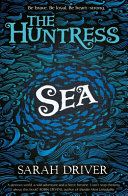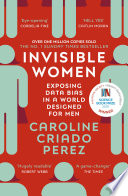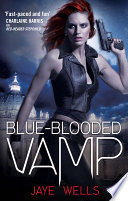Discover 15 authors like Kate Quinn to expand your library with historical fiction novels featuring inspirational characters to transport you to the past.
Kate Quinn is best known for her historical fiction books with shocking plot twists. Her popular books The Huntress and The Alice Network highlight invincible women and earned her The New York Times and USA Today bestselling author mark. She published another hit novel set in World War II, The Rose Code, which follows a blue-blooded debutante, a sharp-tongued London girl, and a crossword-solver as they became codebreakers at Bletchley Park.
Readers love Quinn’s wit and vivid character descriptions that make her novels stand out amongst the crowd. Her ability to weave together multiple timelines, create complex female protagonists, and illuminate lesser-known historical events has established her as a leading voice in historical fiction.
What Makes Kate Quinn Special
Quinn excels at bringing forgotten women’s stories to light, particularly those from World War II. Her novels typically feature dual timelines that connect past and present, revealing how historical events continue to impact generations. She’s particularly skilled at balancing meticulous historical research with compelling personal drama, creating stories that are both educational and emotionally engaging.
In 2025, Quinn continues to dominate the historical fiction bestseller lists, with her novels being adapted for screen and inspiring a new generation of readers to explore women’s roles in history. Her influence has helped elevate the entire genre, proving that historical fiction can be both commercially successful and critically acclaimed.
Authors Like Kate Quinn
For more fantasy recommendations, you might also enjoy exploring best fantasy authors, authors like Brandon Sanderson, authors like George R.R. Martin, or discover our comprehensive guide to best fantasy authors.
1. Chanel Cleeton, 1980 - Present
Chanel Cleeton is a Cuban-American author who applies her experience when her family was in exile after the Cuban revolution to her writing. She explores her identity and family history in one of her best books, Next Year in Havana, which earned the 2018’s Reese Witherspoon Book Club pick. The story follows Mirasol Ferrera, who travels to her grandmother Elisa’s birth country, Cuba, to scatter her ashes. But she unexpectedly discovers her family’s greatest secrets instead.
Cleeton’s work shares Quinn’s focus on multigenerational storytelling and the ways family secrets shape our understanding of history. Her Cuban heritage brings a unique Latin American perspective to historical fiction, exploring themes of exile, identity, and the lasting impact of political upheaval.
“Sometimes the bravest thing you can do is decide to leave when it is no longer wise to stay.”
Chanel Cleeton, Next Year in Havana
2. Heather Morris, 1950 - Present
Morris’s book The Tattooist of Auschwitz is based on the life and love story of Lale and Gita Sokolov in a Nazi camp. It’s a dark story that contains graphic scenes and depicts the main characters’ fortitude despite harrowing events as they fight for their survival and freedom. It sold over eight million copies globally and was one of the New York Times bestselling paperback trade fiction of 2019. If you like Quinn’s The Alice Network, you’ll love Morris’s Cilka’s Journey: A Novel, the story of an innocent young woman who survives Auschwitz but is imprisoned again in a Siberian camp.
Morris shares Quinn’s commitment to telling untold stories from World War II, particularly focusing on the human capacity for love and resilience in the face of unimaginable horror. Her work has sparked important conversations about Holocaust education and survivor testimonies in contemporary literature.
“It’s only your own space if you make it yours.”
Heather Morris, The Tattooist of Auschwitz
3. Esi Edugyan, 1978 - Present
Born in 1978, Esi Edugyan is an influential, award-winning, and best-selling Canadian author of historical fiction. As a black woman, her novels revolve around her ancestor’s experiences during WWII, racism, and mental health. She is the first-ever black woman and the third to win Canada’s most prestigious literary award, the Scotiabank Giller Prize twice, with her books Half-Blood Blues and Washington Black inspired by the true story of the Tichborne case.
Edugyan brings essential perspectives on race and identity to historical fiction, examining how marginalized communities navigated historical events. Her lyrical prose and complex character development rival Quinn’s storytelling while offering crucial representation in the genre.
“You were more concerned that slavery should be a moral stain upon white men than by the actual damage it wreaks on black men.”
Esi Edugyan, Washington Black
4. Kristin Hannah, 1960 - Present
Kristin Hannah is an excellent author of historical fiction who writes about powerful heroines and notable historical moments. First up is Goodreads’ Best Historical Fiction of 2015, The Nightingale, about two sisters fighting for their lives and freedom during WWII. Another great read is The Four Winds, which tells the story of Elsa Martinelli and others who lived through the Great Depression Era.
The Nightingale has more than 4.5 million copies sold worldwide and has been adapted into a movie. The Four Winds is Hannah’s third overall bestselling novel, with over 550,000 copies sold, and is also the top New York Times bestselling fiction book in 2021.
Hannah’s ability to capture female resilience during historical crises mirrors Quinn’s approach. Her novels consistently explore how ordinary women become extraordinary when faced with impossible circumstances, making her a perfect recommendation for Quinn fans.
“If I have learned anything in this long life of mine, it is this: in love we find out who we want to be; in war we find out who we are.”
Kristin Hannah, The Nightingale
5. Ruth Downie, 1955 - Present
Ruth “R.S.” Downie was fascinated that Roman soldiers could not marry but had affairs with local women. She used this as an inspiration and eventually became a famous British author of crime novels set in the Roman empire. The introductory book of her famous series, Medicus, is one of the seven book recommendations in the best thrillers for Christmas by The Times. It focuses on the troubles and adventures of Gaius Petrius Ruso, a military doctor based in Britain.
Downie’s historical mysteries offer a different time period than Quinn’s work while maintaining the same attention to historical detail and strong character development. Her Roman Britain setting provides fascinating insights into daily life in ancient times.
“Women are not always what we seem to be. What our reputations would tell you. Nor do we only exist in reference to our fathers, husbands, and sons.”
Ruth Downie, A Year of Ravens
6. Alice Hoffman, 1952 - Present
Alice Hoffman is the best choice if you’re looking for books with heroines, history, and magic. This American novelist has more than 30 novels, including Practical Magic which was made into a film in 1998. It’s an intriguing novel about two sisters who discovered they are witches. Hoffman dedicates her writing to her children and young adult readers. You can also check out Faithful, a story of a car accident survivor who finds solace in rescue dogs when she moves to New York City.
While Hoffman incorporates magical realism into her historical fiction, she shares Quinn’s focus on women’s stories and the ways family history shapes identity. Her blend of historical events with mystical elements creates a unique reading experience.
“My darling girl, when are you going to realize that being normal is not necessarily a virtue? It rather denotes a lack of courage.”
Alice Hoffman, Practical Magic
7. Gina Marie Guadagnino, Unknown - Present
Kate Quinn describes Guadagnino’s debut novel, The Parting Glass, as “a gem.” It’s a story of two women in 19th century New York City. While Mary hides her identity behind a maid uniform, Charlotte keeps a secret relationship with Mary’s brother. It tackles the issues of social class and sexuality. This author from Manhattan has other works like The Morris-Jumel Mansion Anthology of Fantasy and Paranormal Fiction, an anthology with sci-fi, supernatural, historical fiction, and romance.
Guadagnino’s focus on LGBTQ+ themes in historical fiction brings important representation to the genre. Her exploration of class dynamics and hidden identities in 19th-century New York echoes Quinn’s interest in revealing the hidden stories of marginalized women.
“Desire nothing but what is within your reach; for if your desires are unreasonable, you may be certain of disappointments.”
Gina Marie Guadagnino, The Parting Glass
8. Heather Webb, Unknown - Present
Heather Webb is a seven-time USA Today bestselling author and winner of the STAR Award for Published Women’s Fiction in 2018, specifically for her collaboration novel with Hazel Gaynor, Last Christmas in Paris. This novel illustrates the impact of World War I and the love that blooms through letters between two best friends. She worked with Kate Quinn and five other bestselling and award-winning authors in Ribbons of Scarlet to write about the six powerful women in the French Revolution that changed the world’s view on women.
Webb’s collaborative approach with other historical fiction authors, including Quinn herself, demonstrates the supportive community within the genre. Her epistolary novels and focus on revolutionary women align perfectly with Quinn’s storytelling style.
“Love did not conquer all; it only made life more bearable for a short time before it consumed its victims.”
Heather Webb, Rodin’s Lover
9. Greer Macallister, Unknown - Present
Greer Macallister is an author of historical fiction and thrillers. She uses the pen name G.R. Macallister for writing fantasy and fiction and has an epic debut with Scorpica. It’s the first book of her Five Queendoms, a queer series. Her debut novel in historical fiction, The Magician’s Lie, was listed as a USA Today bestseller. It’s about a notorious female magician who only has a night to convince the police that she didn’t kill her husband.
Macallister’s genre-blending approach and focus on women in unconventional roles mirrors Quinn’s interest in highlighting overlooked female figures from history. Her mysteries incorporate the same level of historical detail and character complexity that Quinn fans appreciate.
“But this is life, and when bad things come to us, there isn’t much choice. You survive them or you don’t.”
Greer Macallister, The Magician’s Lie
10. Stephanie Dray, 1971 - Present
Stephanie Dray has collaborated with Kate Quinn three times, and Quinn strongly recommends Dray’s work. Dray is a bestselling New York Times, USA Today, and Wall Street Journal historical women’s fiction author. This author from Maryland used to write historical fiction with magical realism, but she shifted to creating novels that focused more on historical women’s biographies. It includes The Nile Trilogy series, based on Cleopatra’s daughter’s true story.
Dray’s evolution from magical realism to biographical historical fiction shows the same commitment to research and authenticity that characterizes Quinn’s work. Their frequent collaborations demonstrate their shared vision for bringing forgotten women’s stories to light.
“Life is a bargain between bitter and sweet. Because there is a surfeit of bitter, we must savor the rare sweet.”
Stephanie Dray, Daughters of the Nile
11. Pam Jenoff, Unknown - Present
Pam Jenoff uses her experience as a Special Assistant to the Secretary of the Army and Consulate in Poland to create gripping novels like The Lost Girls of Paris. It’s about the sisterhood, courage, and endurance of women in World War II to survive. It earned a New York Times bestseller and Goodreads’ Best Historical Fiction nomination in 2019. Jenoff is now a well-known author who teaches law. If you loved Quinn’s The Huntress, read The Lost Girls of Paris.
Jenoff’s professional background in military and diplomatic service brings authentic detail to her World War II fiction. Her focus on women’s secret operations during the war directly parallels Quinn’s interests and research areas.
“The truth is sometimes the very opposite from what you expect it to be.”
Pam Jenoff, The Lost Girls of Paris
12. Stephanie Marie Thornton, 1980 - Present
Thornton has other stories revolving around American history and Ancient Egypt that you’ll enjoy. Her novels tell the stories of impressive women who rose into positions of power, like Alexander the Great’s wife, Roxana, and Empress Theodora of the Byzantine Empire.
Thornton’s biographical approach to historical fiction, focusing on powerful women from various time periods, shares Quinn’s commitment to highlighting female agency in history. Her diverse historical settings offer readers the same kind of immersive experience across different eras.
“You never know what you can achieve so long as you never stop trying.”
Stephanie Thornton, The Secret History: A Novel of Empress Theodora
13. Martha Hall Kelly, Unknown - Present
If you appreciate tales of women who remained strong through agonizing settings like WWII, you’ll enjoy reading Lilac Girls, which has already sold one million copies. It’s based on a real story and a heroine’s search for happiness, freedom, and love. We also recommend reading Kelly’s Sunflower Sisters if you enjoy Quinn’s The Alice Network and The Rose Code, as the novel also features brave women who defied the norm.
Kelly’s focus on real women’s stories from wartime, particularly those involving humanitarian efforts, aligns with Quinn’s interest in showcasing women’s often-overlooked contributions to historical events.
“Somewhere in a corner of our hearts, we are always twenty.”
Martha Hall Kelly, Lilac Girls
14. Debra May Macleod, Unknown - Present
Like Quinn’s Empress of Rome Saga, Debra May Macleod’s historical fiction about influential women in Ancient Rome is filled with action and intrigue. She has two trilogies that focus on Vestal Virgins.
First is The First Vestals of Rome, set in the 8th century BCE and The Vesta Shadows, which shows the fall of the Roman republic and the rise of empires.
Macleod’s deep dive into Roman women’s religious and political roles offers the same kind of meticulously researched historical detail that Quinn provides, while focusing on an earlier historical period that still resonates with contemporary themes.
“You were raised to a great height by our friendship, but mostly through your own extraordinary accomplishments, which all men acknowledged.”
Debra May Macleod, To Be Wolves: A Novel of the Vestal Virgins
15. Fiona Davis, 1966 - Present
If you want to take a break from historical fiction set in far-off ancient eras, Fiona Davis is your go-to author. GMA Book Club pick of 2020, The Lions of Fifth Avenue, is just one of Davis’ many award-winning works set in New York City. If you’re looking for a similar story to Quinn’s The Diamond Eye, Davis’ The Magnolia Palace is a great choice.
Davis specializes in 20th-century New York settings, offering the same dual-timeline structure and focus on women’s stories that make Quinn’s work so compelling. Her architectural focus adds a unique element while maintaining the historical authenticity Quinn fans expect.
“History is made by people in power making decisions, and their notes and writings reveal the decision-making process.”
Fiona Davis, The Lions of Fifth Avenue
Why These Authors Will Appeal to Kate Quinn Fans
These authors share several key elements that make Kate Quinn’s historical fiction so compelling: they prioritize women’s stories that have been marginalized or forgotten by traditional history, they conduct meticulous research to bring historical periods to life, and they understand that the best historical fiction illuminates how the past continues to shape the present.
Whether you’re drawn to the World War II resistance stories that Quinn handles so masterfully, or you want to explore different time periods with the same level of character development and historical detail, these authors offer rich alternatives. From the Roman Empire to 20th-century New York, from the Holocaust to the French Revolution, each writer brings their own expertise and perspective while maintaining the high standards Quinn has set for historical fiction.
The beauty of exploring these authors is discovering how different writers approach similar themes of female resilience, hidden histories, and the power of individual agency within larger historical movements. While Quinn has perfected the art of the dual timeline World War II novel, these authors expand the possibilities of what historical fiction can achieve across different eras and cultures.
In 2025, historical fiction continues to evolve, with authors like these leading the charge in bringing diverse perspectives and previously untold stories to mainstream audiences. They prove that there’s no shortage of compelling historical narratives waiting to be discovered, particularly when viewed through the lens of women’s experiences.





